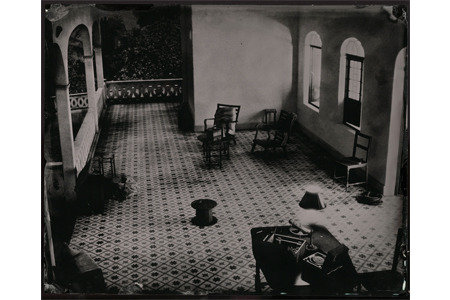Paloma Polo
dal 24/9/2012 al 2/11/2012
Segnalato da
24/9/2012
Paloma Polo
kurimanzutto, Mexico City
Posicion aparente. The project explores the close relationship between scientific development and colonial expansion

'Posicion aparente' is part of a research project about the scientific expeditions that took place during the 19th century and beginning of the 20th century in order to view and document different astronomical phenomena. In this project Paloma Polo (Madrid, 1983) explores the close relationship between scientific development and colonial expansion by the European imperialist powers. On this occasion, Polo focuses on an expedition undertaken in 1919 by the British astrophysicist Sir Arthur Stanley Eddington to Principe Island, a former Portuguese colony in the Gulf of Guinea, to attempt to prove Einstein's Theory of Relativity through the observation of the effects of a total solar eclipse. There is no visual documentation (neither photographs nor drawings) of this expedition, which was not highly esteemed by the scientific establishment of the times, even though it apparently fulfilled its objective. But there is a commemorative stone on the island in memory of Eddington's visit. In the summer of 2011, at the suggestion of the artist and with the support of the Regional Government of Principe, the stone was moved to the exact spot, just a few metres away, where, according to the artist's research, the viewing of the eclipse took place. Paloma Polo, whose work analyses how we articulate our relationship with images, has made a 16mm film about how the stone was moved with a rudimentary cargo system by descendents of the slaves that worked in the old cocoa plantations on the island.



